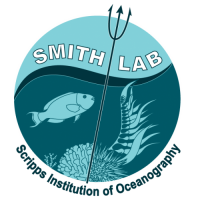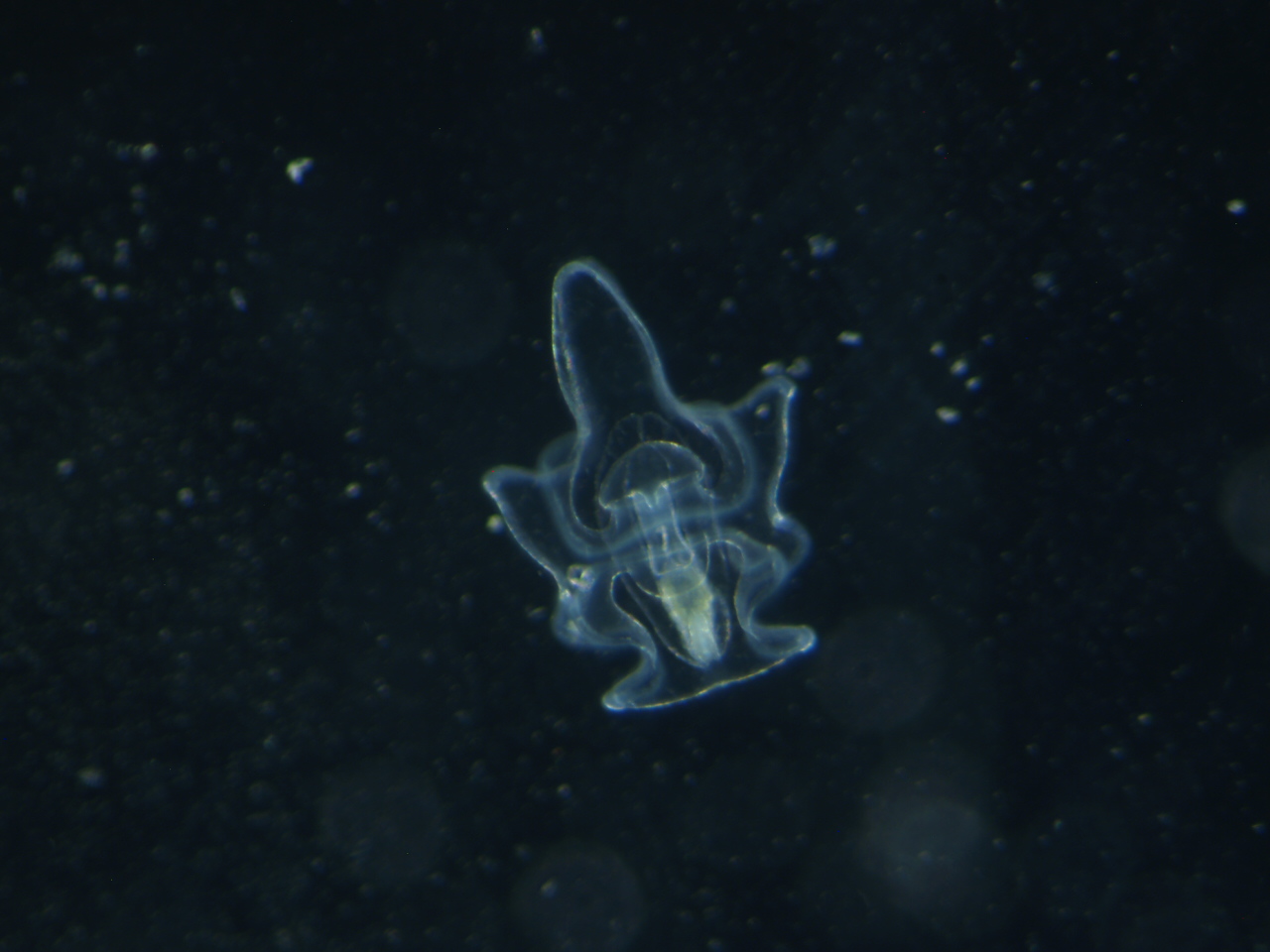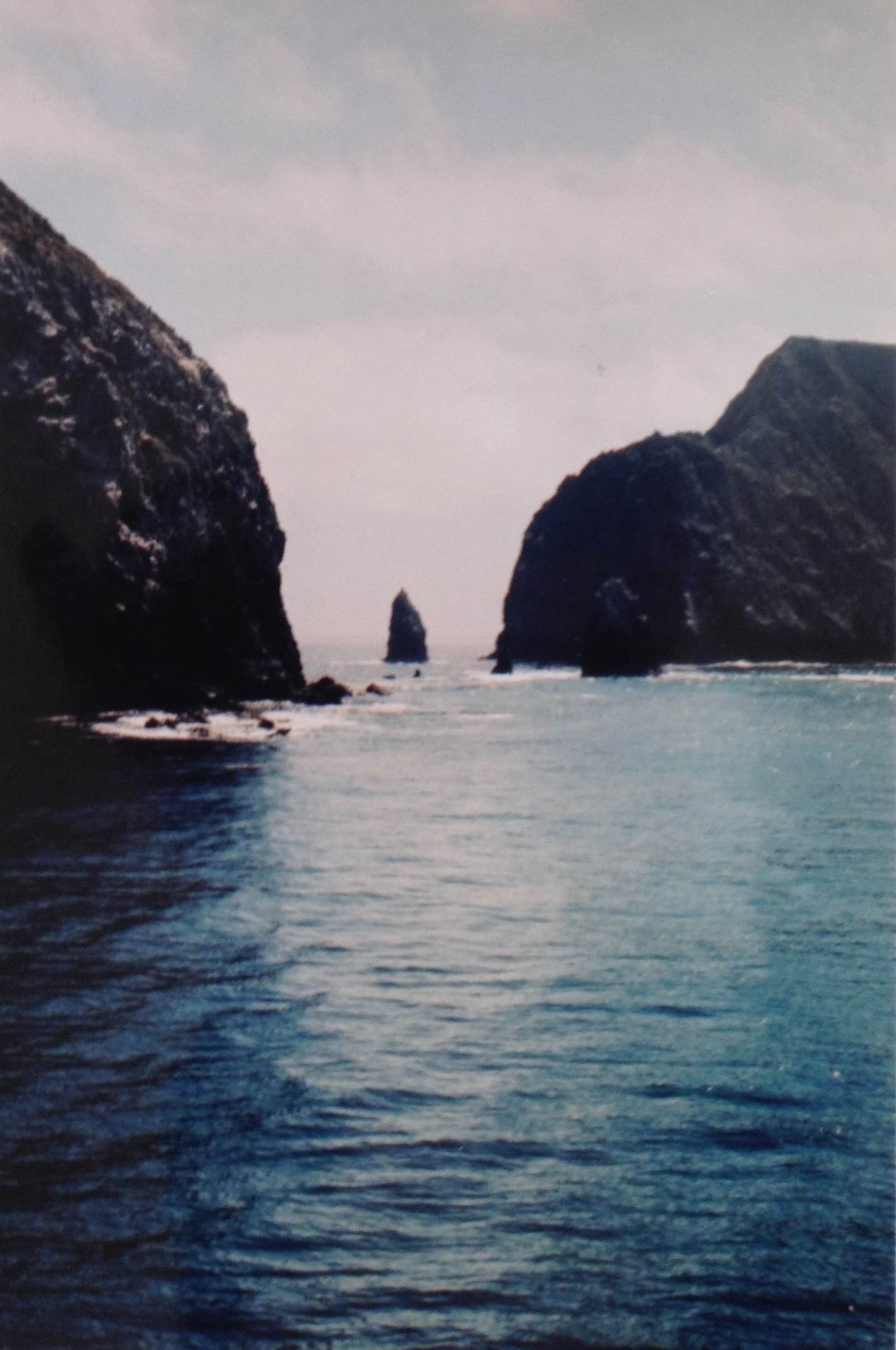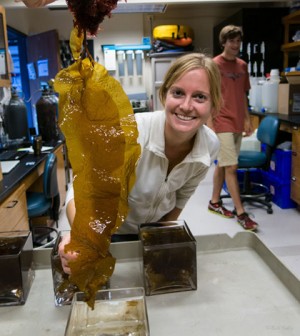Crown-of-Thorns Starfish Larvae can feed on Organic Matter Released from Corals Ryota Nakajima, Nobuyuki Nakatomi, Haruko Kurihara, Michael D. Fox, Jennifer E. Smith, and Ken Okaji Abstract: Previous studies have suggested that Crown-of-Thorns starfish (COTS) larvae may be able to survive in the absence of abundant phytoplankton resources suggesting that they may be able to utilize alternative food sources. Here, … Read More
Adventures in Chagos
By Samantha Clements. This year, during the months of March and April, I conducted coral reef benthic surveys for the Khaled bin Sultan Living Oceans Foundation (KSLOF) in Chagos. Chagos is the largest archipelago in the world and lies within the British Indian Ocean Territory. The islands of the archipelago are very far from any continents and have been uninhabited … Read More
Northern Channel Islands Algae Collection Trip
By Niko Kaplanis In a recent collaboration with the Paul Jensen Lab here at Scripps, I travelled to the Northern Channel Islands to assist with collections for their research. The Jensen lab focuses on microbial distributions and interactions with marine plants and invertebrates as well as sequence-based approaches to the discovery of natural products from marine microbes. Our objective for … Read More
The CAU Slaughterhouse Chronicles
By Adi Khen As a first-time volunteer at the Smith lab, I got to be involved in one of the most exciting parts of data processing: drying, weighing, acidifying and, basically, slaughtering CAUs! Let me explain… CAU stands for Calcification Accretion Unit, or in this case a set of two stacked PVC tiles that are used to measure carbonate … Read More
Smith Lab Ocean Acidification Experiments Featured in the Environmental Monitor
The Environmental Monitor is a journal, published by Fondriest Environmental, that covers topics like products, projects and trends in the environmental monitoring industry. It aims to keep professionals informed about developments in their field. Members of the Smith Lab at Scripps Institution of Oceanography and the Hamilton Lab at Moss Landing Marine Labs have been performing several experiments that look at … Read More
Perks of Being A Marine Ecologist
Jill Harris, a PhD student in the Smith Lab, talks about one of the many perks of being a marine ecologist. Can you spend the day looking out on the beautiful oceanic landscape of San Diego as part of your “job”
Triton Day: Welcoming Prospective Students with Charismatic Critters!
Maggie Johnson, a first year PhD student in the Smith Lab, talks about her fun filled day as an ambassador of SIO’s marine biology program for UCSD’s annual Triton Day. She reminds us why we love marine biology and should share our passion with the community.






